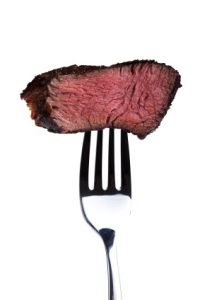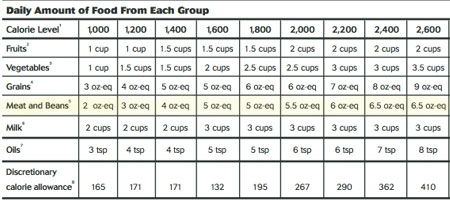For many Americans, their meat-eating habits are becoming a concern – especially when it comes to red meat. With so many advocates for vegan and vegetarian diets and campaigns to eat less meat, it’s hard not to question our carnivorous ways. But maybe that’s a good thing.
Meat isn’t inherently bad. In fact, it can be healthy as there are many nutrients we can gain from it such as iron, protein and essential amino acids. But where the concern rises is in the amount of meat we eat, how much fat it contains, and what kind of quality it is.
So what kind of meat should we be eating? Poultry and fish are traditionally the leanest options. Some types of fish provide highly-beneficial Omega-3 fatty acids. And chicken is typically very lean making it a healthy option for those wanting to keep meat in their lives, as long as it isn’t fried.
Is Red Meat Unhealthy?
So what’s so wrong with red meat? For starters, it can be very high in fat: One 3-ounce serving of 85 percent lean ground beef will set you back 218 calories and 13 grams of fat. And one 3-ounce serving of 80 percent lean ground beef racks up 231 calories and 15 grams of fat (6 grams of saturated), according to caloriecount.com.
The USDA reports that high levels of dietary saturated fatty acids are associated with higher levels of blood total cholesterol and LDL (or bad) cholesterol, which can put a person at greater risk for cardiovascular disease. So saturated is really the area to watch closely.
How Much Meat do We Need?
If going meat-free isn’t for you, it should be noted that a 2,000 calorie diet only requires 5.5 ounces of food from the “meat and bean” group for the whole day. DietsInReview.com’s Registered Dietitian, Mary Hartley, RD, recommends that an individual might spread this out over the course of breakfast, lunch and dinner so meat is no longer the focal point of the meal. (Serving recommendations below.)
In short, the Dietary Guidelines for Americans recommend that we eat red meat no more than once a week.
Does Quality Matter?
Mary states that while antibiotics and hormones aren’t usually an immediate threat to individuals, there can be a potential public health threat. “There is evidence that antibiotics in livestock feed give rise to antibiotic-resistant germs that can threaten humans. And studies have shown how a normal strain of staphylococcus bacteria passed from humans into pigs, where it became a ‘superbug,’ resistant to the antibiotics (tetracycline and methicillin) usually used to treat it, and then the antibiotic-resistant staph jumped back into humans,” she said.
When possible, Mary recommends sticking to grass-fed. “Their meat is more nutritious with a bit less fat but more omega-3 fatty acids, conjugated linoleic acid (CLA), and fat-soluble vitamins E and K. Plus it has more B-vitamins, beta-carotene, and several minerals that come from the soil. Meat from grass fed cows tastes better, but compared to conventional meat, it is more expensive and harder to find.”
If a meat-free diet is a consideration for you, one great benefit of this approach is getting to make up those calories from meat with other healthy foods. One veggie burger – such as our sweet potato black bean burger – will only set you back about 120 calories and .5 grams of fat, while a 5.3 ounce burger from McDonalds will cost you 390 calories and 19 grams of fat. Further proof that a vegetarian diet is safe? Mary confirms that a person doesn’t really need eat meat at all, and she personally only consumes a small portion of meat about 10 times a year at most.
Meatless Progress
While it may seem like there’s still plenty of burger-loving Americans in our midst, a recent poll from NPR surveying 3,000 U.S. adults revealed that only 6 percent have increased their red meat intake in the last three years, 55 percent haven’t changed their intake at all, and 39 percent are eating less. So it does seem the (red) meat-free message is catching on, and I personally think this is a change for the better.
Also Read:
Your Meat Eating Preferences May be Determined by Genetics
Sexiest Vegetarian Celebrities
Protein-Rich Meat Alternatives

